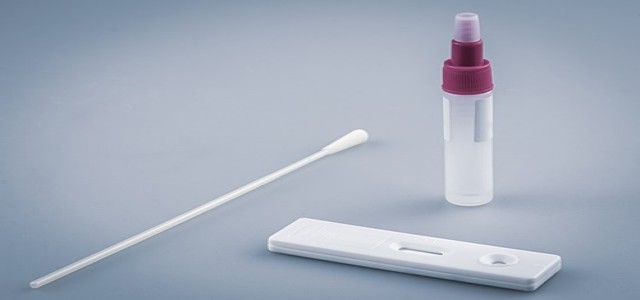
Researchers in the US have reportedly developed a new inexpensive smartphone-based testing kit that can detect the presence of the coronavirus, and influenza viruses from saliva samples. Studies found that the kit is as accurate as current lab-based tests and is also faster.
Currently, PCR testing is the most accurate technology available for the detection of the SARS-CoV-2 virus, which involves testing a swab sample from the subject, after which the sample is amplified in a lab with viral genetic material.
For amplification, the sample is subjected to various cycles, with rapidly changing temperature, that force the genetic material to replicate, repeated at least 30 times. The process also requires special equipment, which means that specialized labs are required for PCR testing.
This new kit, however, utilizes something called loop-mediated isothermal amplification (LAMP) technology, where the viral material is identified with the same process as PCR testing without the need for complex temperature cycling for amplification.
The main issue with LAMP diagnostics had been its high effectiveness in enhancing viral replication often causing over-sensitivity, meaning high volumes of false positives.
Douglas Heithoff, one of the authors of the study, explained that the major innovation of the research is the solving of the over-sensitivity, which had for decades limited the large-scale deployment of the technology.
Heithoff explained that it took 500 attempts to solve the high sensitivity problem of LAMP for COVID-19, after which the flu viruses were easily detected on the first try.
Not only was the false-positive problem solved, but researchers also developed a new smartphone-based system, for less than $100, called smaRT-LAMP (smartphone-based real-time loop-mediated isothermal amplification).
Researchers have claimed that accurate results can be delivered in twenty-five minutes using the smartphone, LED lights, and a hotplate, at an estimated cost of around $7, far more affordable than PCR tests. The system can be also adapted to detect other viruses by changing the primers.
A smartphone app has also been developed that will direct users through the testing process.
Currently, the focus is on introducing the technology in those areas struggling with access to PCR testing.
Source credit: https://newatlas.com/medical/cheap-accurate-smartphone-lamp-coronavirus-test/
